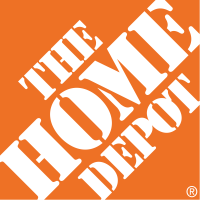
Home Depot Inc
NYSE:HD

Intrinsic Value
The intrinsic value of one
 HD
stock under the Base Case scenario is
255.04
USD.
Compared to the current market price of 355.06 USD,
Home Depot Inc
is
Overvalued by 28%.
HD
stock under the Base Case scenario is
255.04
USD.
Compared to the current market price of 355.06 USD,
Home Depot Inc
is
Overvalued by 28%.
The Intrinsic Value is calculated as the average of DCF and Relative values:

Valuation History
Home Depot Inc

Fundamental Analysis

A protracted slowdown in the U.S. housing and remodeling market could sharply curtail big-ticket spending on home improvements, undermining Home Depot’s historically robust same-store sales growth and straining top-line momentum.
Home Depot’s unmatched store network and strong brand recognition make it the top choice for both professional contractors and do-it-yourself shoppers, positioning the company to capture a disproportionate share of the home improvement market.

Revenue & Expenses Breakdown
Home Depot Inc

Balance Sheet Decomposition
Home Depot Inc

| Current Assets | 31.7B |
| Cash & Short-Term Investments | 1.7B |
| Receivables | 4.9B |
| Other Current Assets | 25.1B |
| Non-Current Assets | 64.4B |
| PP&E | 35.3B |
| Intangibles | 28.5B |
| Other Non-Current Assets | 684m |
Free Cash Flow Analysis
Home Depot Inc

| USD | |
| Free Cash Flow | USD |
Earnings Waterfall
Home Depot Inc

|
Revenue
|
159.5B
USD
|
|
Cost of Revenue
|
-106.2B
USD
|
|
Gross Profit
|
53.3B
USD
|
|
Operating Expenses
|
-31.8B
USD
|
|
Operating Income
|
21.5B
USD
|
|
Other Expenses
|
-6.7B
USD
|
|
Net Income
|
14.8B
USD
|
HD Profitability Score
Profitability Due Diligence

Home Depot Inc's profitability score is 51/100. The higher the profitability score, the more profitable the company is.

Score
Home Depot Inc's profitability score is 51/100. The higher the profitability score, the more profitable the company is.
HD Solvency Score
Solvency Due Diligence

Home Depot Inc's solvency score is 47/100. The higher the solvency score, the more solvent the company is.

Score
Home Depot Inc's solvency score is 47/100. The higher the solvency score, the more solvent the company is.
Wall St
Price Targets
HD Price Targets Summary
Home Depot Inc

According to Wall Street analysts, the average 1-year price target for
 HD
is 437.24 USD
with a low forecast of 300.31 USD and a high forecast of 498.75 USD.
HD
is 437.24 USD
with a low forecast of 300.31 USD and a high forecast of 498.75 USD.
Dividends
Current shareholder yield for  HD is
.
HD is
.
Shareholder yield represents the total return a company provides to its shareholders, calculated as the sum of dividend yield, buyback yield, and debt paydown yield. What is shareholder yield?
The intrinsic value of one
 HD
stock under the Base Case scenario is
255.04
USD.
HD
stock under the Base Case scenario is
255.04
USD.
Compared to the current market price of 355.06 USD,
 Home Depot Inc
is
Overvalued by 28%.
Home Depot Inc
is
Overvalued by 28%.






















































 You don't have any saved screeners yet
You don't have any saved screeners yet